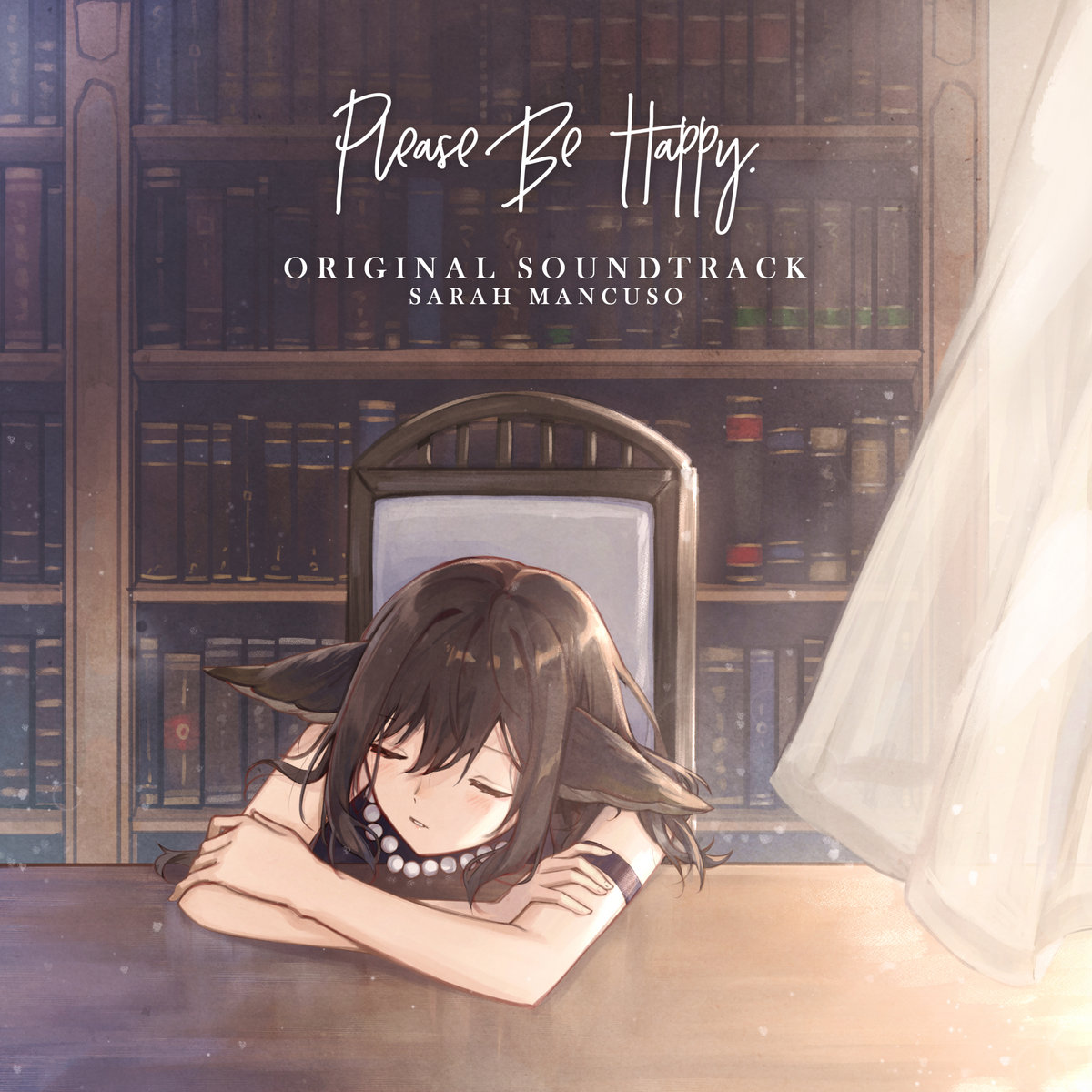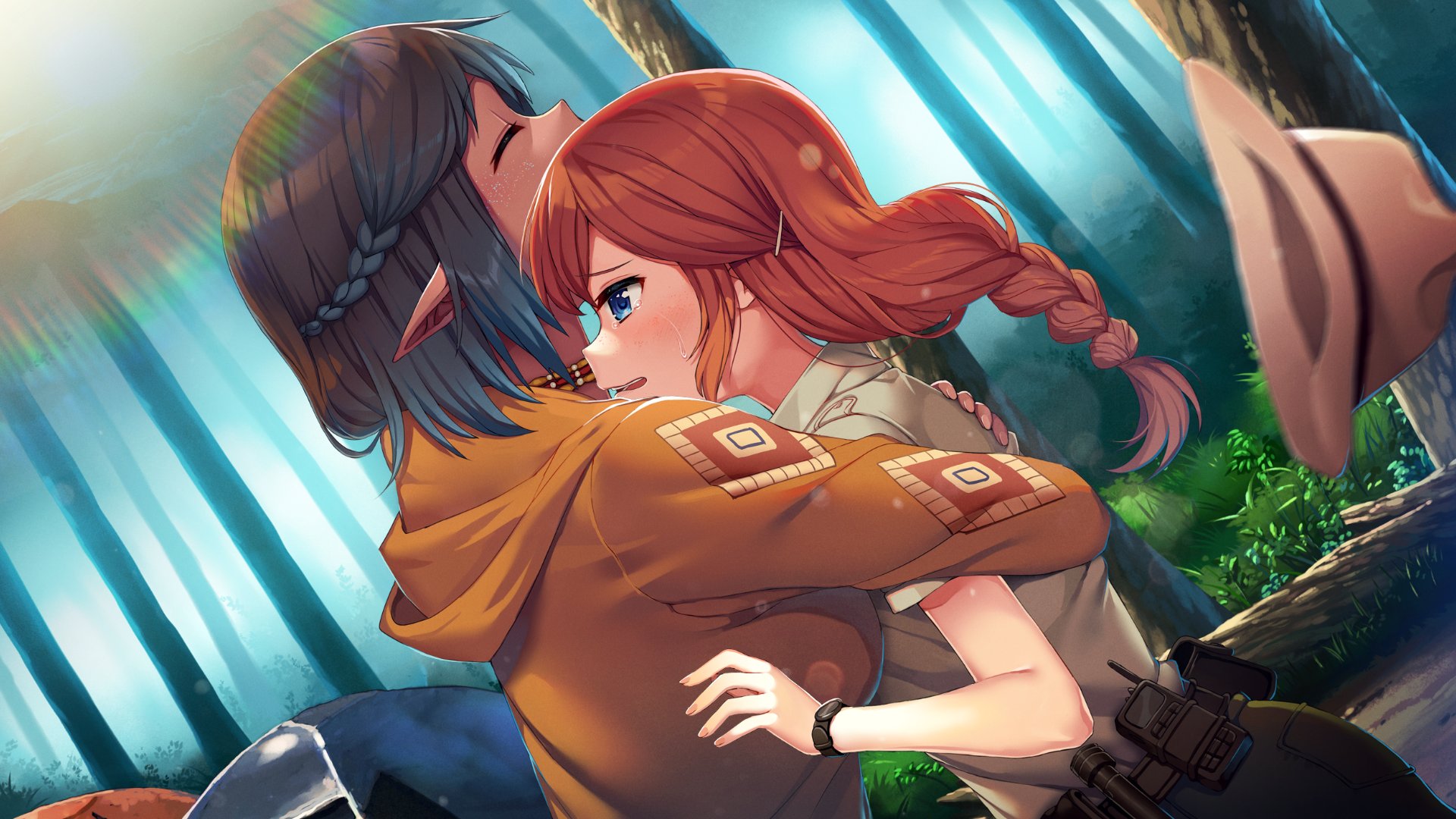A year ago today I released PC LOVE LETTER, a six-song EP that went from concept to release in only seven days.
It started, as most things do, with a dumb joke. I was awake in bed one Saturday night when the phrase PC LOVE LETTER intruded into my thoughts, and I thought “that should totally be someone’s vaporwave pseudonym”. I thought for sure the too-obvious pun on “PC load letter” would have been claimed by someone already, but a quick search around online surprised me: this dumb joke was mine for the taking. So I decided I would do a vaporwave project. I had never even considered making vaporwave before that moment, but there I was.
 In some sort of crazed state, I wrote three songs the following day. They were simple and messy in a way that was exciting.
In some sort of crazed state, I wrote three songs the following day. They were simple and messy in a way that was exciting.
At the time, I had been in the midst of a years-long struggle to complete Future Human, which was planned to be my third proper album and had been “nearly done” for about two years. I badly needed a break, and this was a good excuse.
There had seemingly been two things slowing down my music work: obsessive focus on production detail, and overambitious songwriting. I had a tendency to either create lots of undeveloped 40-second song snippets, or spend years trying to perfect the drum sounds on a song that was already basically done. To avoid getting similarly bogged down here, I aimed for a rough lo-fi sound and allowed songs to be simple vignettes if they wanted to be. I love the cozy and mysterious atmospheres that lo-fi production can create, and on PC LOVE LETTER it helped give each song its own color and space, like different rooms in a house.
Vaporwave is best-known for slowing down and reprocessing samples of decades-old music, but I didn’t want to do that here. Rather than digging through archives for old pop songs to repurpose, I was going to do vaporwave my own stubborn way: from scratch, while still aiming for that same sound and feel.
The three songs I wrote on that first day were Customer Service Beam, Art Bits, and Cipher. I based the first two solely on my vague concept of what vaporwave was: weaponized music-on-hold, reprocessed infomercials, a love for old computers, a nostalgic reclamation of corporate art. For Cipher I took a more dark and somber direction, loosely inspired by a Phil Collins song featured in a strange 1989 anime of the same name. I wrote Empty on the second day, going deeper into that nocturnal direction.
 The dreary vocals on Cipher and Empty began as upbeat dancefloor-type clips from a royalty-free vocal pack, the closest thing to traditional sampling anywhere on this EP. I threw them into Reason’s pitch editor and transformed them beyond recognition, rewriting the melodies and stitching together entirely new words — I’m convinced that Reason’s pitch editor is some sort of alien magic. I also slowed them way down to get that lethargic, exaggerated articulation common to vaporwave vocals.
The dreary vocals on Cipher and Empty began as upbeat dancefloor-type clips from a royalty-free vocal pack, the closest thing to traditional sampling anywhere on this EP. I threw them into Reason’s pitch editor and transformed them beyond recognition, rewriting the melodies and stitching together entirely new words — I’m convinced that Reason’s pitch editor is some sort of alien magic. I also slowed them way down to get that lethargic, exaggerated articulation common to vaporwave vocals.
PC LOVE LETTER’s warm lo-fi fuzziness was mostly created using Reason’s built-in effects, and was then enhanced further by slowing most of the songs down a bit in Audacity afterwards. I gleefully committed the grave music sin of writing and mixing with the intense effects processing already coloring the master output, letting them completely define the sound from the beginning. The finishing touch came from my longtime friend Tom Pritchard, who recorded the finished songs through his tape deck at home for that last bit of authenticity.
With each new song, I couldn’t help but get more and more ambitious. I decided to try taking the faux-sampling idea a bit further by building Liminal Space around a short repeating clip from an unreleased experiment. I isolated a few notes that looped interestingly, and added a tinny synth bassline and some bits of percussion to sound like the loop had been pulled from something more complete. I stacked some fuzzy synth chords and a deep bass drone on top of the loop, and Liminal Space started to take shape.
 At that point I had completed five songs in three days, so I was feeling ambitious and ready for anything. The final song to be written was Funeral Benefits, and it proved to be the biggest challenge. I decided I’d start this one by writing a classic-sounding song in its entirety, to use as source material for sampling. The source-material song came out great and I was excited to start playing with it…until my hard drive died and I only had a backup from the previous night.
At that point I had completed five songs in three days, so I was feeling ambitious and ready for anything. The final song to be written was Funeral Benefits, and it proved to be the biggest challenge. I decided I’d start this one by writing a classic-sounding song in its entirety, to use as source material for sampling. The source-material song came out great and I was excited to start playing with it…until my hard drive died and I only had a backup from the previous night.
I salvaged Funeral Benefits’ source material from an MP3 I had excitedly shared with a friend that night, and started chopping it up and layering it with new parts to expand on it and compensate for errors and oddities that I no longer had the ability to fix in the source itself. It still wasn’t quite complete, and I was already entirely neglecting my overambition guideline, so I wrote another source material song to chop up and use as an intro before it kicks in. I’ve always loved Timeless by John Abercrombie and I took some direct inspiration from that as the starting point for the intro here.
With Funeral Benefits successfully rebuilt from the ashes, I now had six songs done in six days, and I was thrilled with them. I decided to release it as soon as possible, suspecting that if I didn’t strike quickly and call it done, I would probably let it sit on the shelf for years. But I still needed cover art for it.
 After a brief aimless attempt at HyperCard-inspired cover art, I decided to try my hand at collage-making. Most of my friends are familiar with my love of Robert Pollard’s music, but he’s also a formidable collage artist, and I took a lot of inspiration from his artwork here. I went through a bunch of old computer magazines and ancient machine-parts catalogues on archive.org and took a screenshot of anything that looked like it might be useful, and started assembling the pieces together in Photoshop with no plan in mind. I came up with three possible cover collages that morning and ended up choosing the second one, which seemed like the best fit for the songs.
After a brief aimless attempt at HyperCard-inspired cover art, I decided to try my hand at collage-making. Most of my friends are familiar with my love of Robert Pollard’s music, but he’s also a formidable collage artist, and I took a lot of inspiration from his artwork here. I went through a bunch of old computer magazines and ancient machine-parts catalogues on archive.org and took a screenshot of anything that looked like it might be useful, and started assembling the pieces together in Photoshop with no plan in mind. I came up with three possible cover collages that morning and ended up choosing the second one, which seemed like the best fit for the songs.
I released PC LOVE LETTER a few hours later.
In some ways it feels less like I created PC LOVE LETTER and more like I summoned it into existence from another dimension. This EP came together more quickly than any other music project I’ve done before or since, and I’m still not entirely sure how its creation went so smoothly. (Yes, I am seriously saying this about a week in which my hard drive crashed and needed to be replaced.) However it happened, I’m glad these songs chose me to create them.
I have PC LOVE LETTER to thank for lifting me out of a creative rut and for kickstarting a far more prolific year than I thought I was capable of. It also, incredibly, directly led to my being given the opportunity to compose for Subserial Network, Sol Hemochroma, and Heart of the Woods.
Thank you, you magical little EP.
PS: If you enjoyed PC LOVE LETTER, you might also enjoy Transmission Control, a followup created as the soundtrack for Aether Interactive’s Subserial Network.











